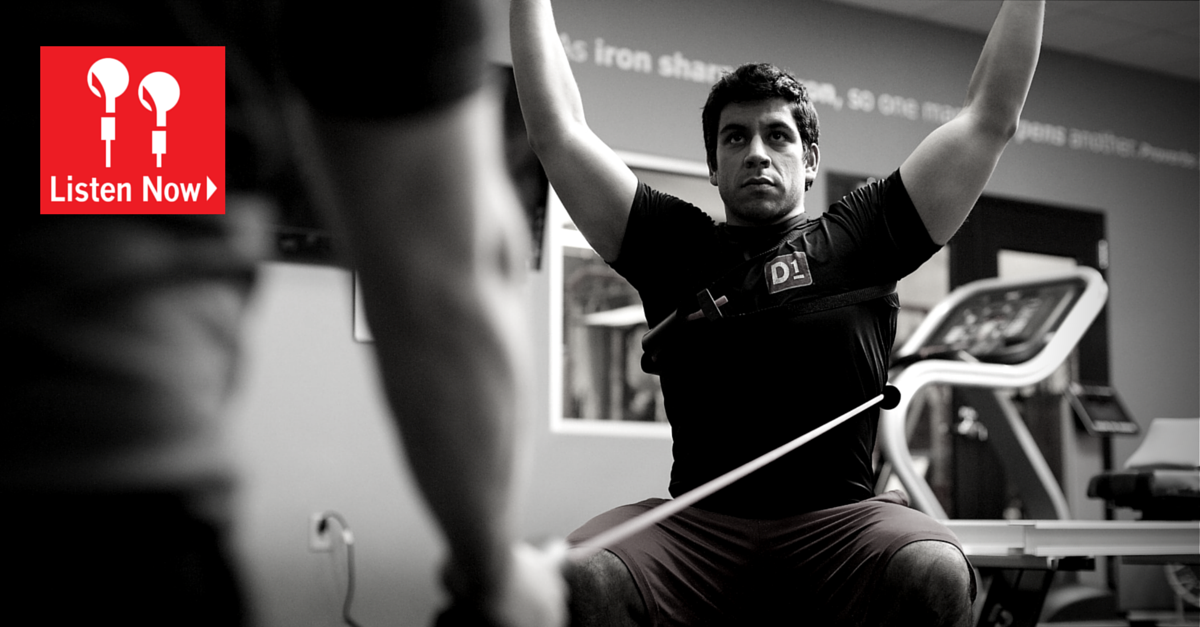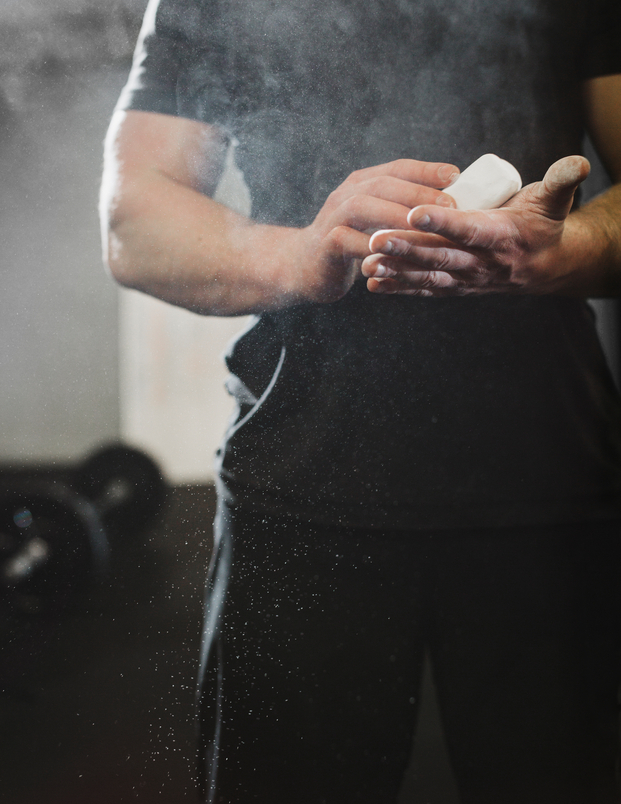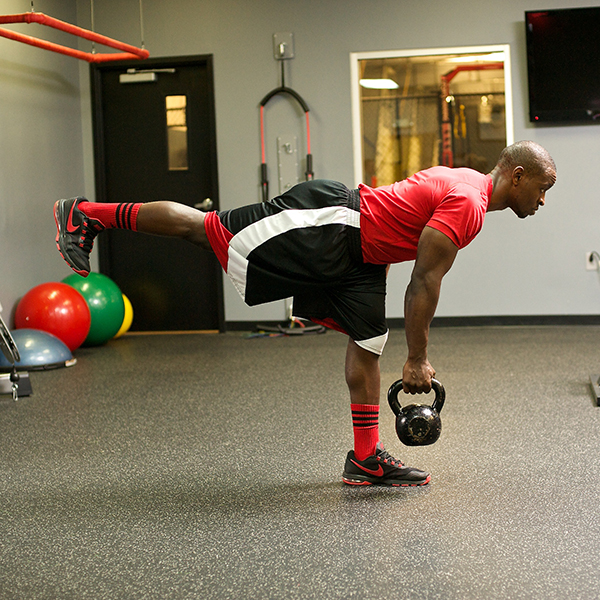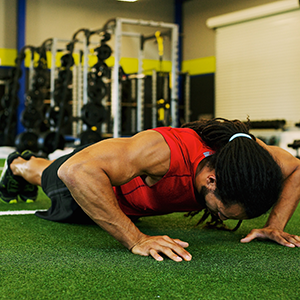What Makes CrossFit So Special?
Written by Gray Cook FMS Pod Casts
Dr. Rusin: Injuries in sports are nothing new. We’ve had injuries in sports for the last 200 years and before that. Everyone has always had injuries in sports. We’ve seen it on the main stage because they’re more publicized but with the popularity of CrossFit, all of a sudden the sport of fitness is now being popularized to the point where injuries that are being sustained are put on the forefront. They’re really out there and readily viewable to the gross media and everyone watching.
I’ll go back to the NFL concussion problem that we had about a decade ago. You know, there was an increased incidence in concussions and it became such a problem that something needed to be done. Do you view CrossFit and other styles of training at that same problem of musculoskeletal injury where it’s to the point where something needs to be done to address this?
Gray: Yeah probably and here’s the thing. A lot of people are pleased that we’re now doing something about concussions and we now have a tighter feedback loop with which to monitor a return-to-play or hold somebody out, but if you peel that onion all the way down and all the impact stuff all the way down, it’s simply this - setting a baseline for cognition before you put on a helmet.
Therefore, if you have a head or face contact and we want to revisit that baseline, if you can’t do what you did before the head contact, then we’ve got to assume that something is wrong and we go down the rabbit hole to figure out what it is. But, if you perform the same way you did pre-concussion, then most of our metrics say that it’s either resolved or you didn’t get a concussion.
 Now, the tests we do are different but if you just simply say, I’ve got to do concussion testing to non-concussed people before they get into a situation where they could get a concussion so I can revisit the baseline on the individual.
Now, the tests we do are different but if you just simply say, I’ve got to do concussion testing to non-concussed people before they get into a situation where they could get a concussion so I can revisit the baseline on the individual.
That’s my thing about using the Functional Movement Screen that way. If we set a movement baseline on an intake, here’s what happens. They’re either not broken and then something happened in the gym and they got broken. It’s okay. It’s happened on my watch. It’s happened on your watch. It’s happened on every coach’s watch. A person who wasn’t broken got broken on my watch but you know what? If I know you’re broken before you’re hurt, I can help you. That’s the whole point - if I start seeing your movement integrity decline.
If we would simply baseline movement before we start challenging and developing movement, we would find one of two things. People on intake are already broken but you’re going to let them participate and now they’re going to blame you for their sorry state of affairs, or they’re not broken and your workout is breaking them down.
Maybe the best way to look at movement problems is to find out before you participate…are you already broken and should we be treating you differently on intake because obviously you’re incomplete in your rehabilitation. There’s something left undone here. Obviously, I’m your coach. I want you as a client so I’ve got to take your baggage. ‘I’m not going to let you do overhead because of the way your shoulders and neck look. Other than that, I’m glad you’re here. We can make you fit’.
Or, somebody looked good on their movement screen. They’ve been on a really, really hard course of training and we start to see movement integrity go down. If one of those movements drops into a ‘1’ category dysfunction, they’re potentially headed for a problem where there wasn’t one - I didn’t say they had pain yet – so I basically use that so I don’t have a lot of problems on my watch. I cause problems all of the time. I just catch them before my client does. That’s a pro. That’s what you’re supposed to do. It’s nothing admirable. I don’t need a pat on the back. That’s my job.
Dr. Rusin: I think it definitely should be repeated that the screening system is not a CrossFit problem. It’s really a systemic problem, especially here in America. Everyone likes to put out the fires when they could be easily prevented with a couple of easy measures.
That’s far harder to do when it comes down to it. You know, if you develop knee pain, it just didn’t come yesterday like you said. You have to earn pain sometimes. Especially with repetitive use injuries and some of the larger traumatic injuries, that’s exactly it.

We’re going to switch gears a little bit here. With all of the screening talk aside, you’ve worked with a lot of different athletes from all different backgrounds. What makes CrossFit so special and such a dynamic sport in current day fitness society?
Gray: Well, CrossFit did something that I think we were ready for. First, CrossFit leveraged social media in a very positive and engaging way.
Secondly, CrossFit combined some bodyweight moves with some inherently sound weightlifting moves, and then embraced things like ropes and kettlebells and rings and straight bars in a new, invigorating way. Now, we’re seeing sandbags, jump ropes and a lot of different things getting introduced.
I think one thing CrossFit did was it just said, ‘We need some work capacity. We’re getting soft. Let’s get some work capacity’. If you’re going to do work capacity, bodyweight moves and sound weightlifting techniques can be combined in a metabolic package to probably develop you – not just your cardio system but to develop your musculoskeletal system to engage your proprioception.
That’s going to have a positive effect on weight loss. A lot of people have their most successful weight loss story from CrossFit but the cool thing is that CrossFit was focusing on movement – not on dropping weight.
I think inherently that we keep our focus on movement and keep making that better but what happened? Well, we’re focused on movement. We want everybody to move. Here’s the problem: Everybody can’t move. It’s not CrossFit’s problem.
CrossFit had an amazing solution to a sedentary, lethargic society. The problem was that as CrossFit is getting bigger, we’re still generally on a physical decline as a nation in Western civilization.
Related: How to Successfully Manage Multiple Athletes
The thing I told you about Olympic weightlifting…the reason we’ve got more injuries now (and we did it inherently) was because the European style of teaching Olympic weightlifting started with a broom handle, and until you could do some sexy bottom dropout snatches and deep squats and stuff like that with a broom handle, you didn’t get to touch a bar. If you couldn’t do it with a bar, we sure wouldn’t put plates on there.
But, that’s not the way the Western mentality does. The first time you ever saw a clean, you attempted to do the same thing with 45’s on the plate. That’s just Western mentality. We think we’re entitled to do any damn move that we please just because and unfortunately, the physical landscape has been eroding.
 CrossFit was getting big, badass, very sound workouts all over the Internet in a lot of boxes and at the same time, we’re continuing to decline. We haven’t turned the graph yet on the fitness landscape of America. We have some fit individuals in our society but as a nation, we’re not that fit. All of those new clients that are coming in, they’re part of that nation. They’re broken. The neatest thing is if you want to save them as a client, unfortunately you’ve got to ask the health questions first and you’ve got to ask the fitness questions next.
CrossFit was getting big, badass, very sound workouts all over the Internet in a lot of boxes and at the same time, we’re continuing to decline. We haven’t turned the graph yet on the fitness landscape of America. We have some fit individuals in our society but as a nation, we’re not that fit. All of those new clients that are coming in, they’re part of that nation. They’re broken. The neatest thing is if you want to save them as a client, unfortunately you’ve got to ask the health questions first and you’ve got to ask the fitness questions next.
Everybody thinks they can bring a fitness solution to a health problem but they can’t. If they’ve got pain with movement, it’s not going to get better. It’s not going to get better. If it does, you’re a lucky outlier. You’re not the standard so let’s just go ahead and face that right away. There’s going to be a 20% fail rate due to pain in the FMS.
Most of the CrossFit boxes I’ve interacted with have a chiropractor or a physical therapist on speed dial. They work closely with them. Why not catch that first bout of pain on a screen before they’re exercising? They still got hurt but they got hurt doing a bodyweight move and they said, ‘Ouch, my back hurts when I do that’. ‘Good, let’s get that checked out’. From that guidance point, we can move forward.
Related: How could the FMS Fit with CrossFit?
If they just got a ‘1’ on the screen, I don’t necessarily think they need to see a medical professional. They need to basically do more correctives than conditioning on that particular pattern until we at least get a score of a ‘2’. If in about two or three weeks we can’t get a score of a ‘2’ and there’s no medical reason why we shouldn’t, I would still get them evaluated because they’re going to be stuck there for a while. There’s something that’s going undetected.
Outside of that, as long as you don’t drop below ‘2’s’ on the FMS, pat yourself, your coach and your CrossFit box on the back because they’re making you bigger, faster and stronger, probably leaner, and they’re not compromising your movement.
Believe it or not, I think CrossFit is positioned to probably use the processing power of the FMS better than anybody ever has. First, they’re interfacing. They’re communicating. They’re doing everything and they’re also not getting the best specimens in the world. They’re just getting a cross-section of everybody.
They’re not at the NFL Combine getting these specimens. They’re getting everybody so you’ve got to position yourself for everybody. However, I do think if CrossFit can take the lead on a little more systemization on the front end, we can use them as an example for the future platform of physical education.

 |
This clip was originally recorded as part of an interview with Dr. John Rusin for T-Nation.com. For more on Dr. Rusin's programs and methodology visit DrJohnRusin.com. |
Related Resources
Please login to leave a comment
9 Comments
-
Matt Kingstone 7/30/2015 8:18:20 PM
I am such a fan of this Article. Thank you for putting into words what myself and I think many others in the fitness industry have not been able to do. I totally agree that many people who try out a Crossfit box may not be ready for that style of cross-training. But for many people Crossfit is the face of fitness these days. (which I think some of the resentment toward Crossfit is at least a little jealousy on the part of the rest of the fitness industry). Your point about the sense of entitlement is spont on. If there is one thing we as westerners could use its an ego-check, and The FMS is that ego-check.
I will share the heck out of this article.
As always, thank you for leading the Movement Revolution ethically, professionally and consistently.
-

AP 7/31/2015 3:26:04 PM
^^^^ I've been playing sports and training since junior high I'm not jealous of crossfit but I do think its the best way to injure yourself while working out! Even in this article dude says most of the crossfit boxes he's interacted with has a chiropractor or physical therapist on speed dial! Smh if this wasn't so trendy we wouldn't have to worry about idiots trying to jump right into crossfit before hitting the gym on a regular basis!
-

JJ Butcher 7/31/2015 1:49:49 PM
Gray Cook always put things into perspective , if you haven't gotten Fms certified, what are you waiting for, it's eye opening!
-

Jason Barnes 8/3/2015 7:56:13 PM
I applaud both Dr. Cook and Dr. Russin on this honest Andy very informative article! Dr. Cook and Coaches Mike Boyle & Todd Durkin help start our vision of a fitness Community. I truly believe that us CrossFitters and members of the Functional Fitness field only want to see our Athletes move and perform better.
Coachjmb
-

Johnny 8/4/2015 1:31:04 PM
Great message Gray!
-

GH 8/7/2015 12:36:30 PM
I love Gray Cook's work but I have reservations about this. Here in the UK Crossfit is gaining popularity but you still hear a lot of worrying things about injuries. I was on a course recently and 3 of the guys on it were crossfitters. All of them were carrying injuries from it and these were young healthy guys. Gray says that a lot of people can't move but that's not Crossfit's problem. It might not be their problem but in my opinion they do have a responsibility to ensure that people undertaking their programme are ready for it. If you take Joe Average off the street and put him straight into doing deadlifts and cleans it's not gonna be a case of if he gets hurt, it's going to be when. You just don't give a total beginner exercises like that off the bat. It's irresponsible. I applaud Gray for trying to integrate the FMS into CrossFit as it will only help. But will all Crossfit coaches and Centres be strict enough to say to people, 'you're not ready for this yet, let's fix you up first and then go'. I doubt it.
-

jake 8/7/2015 12:36:30 PM
Problem is, Crossfit is not a sport, it is training. Few get hurt training. For an elite few, Crossfit is a sport - those competing for games, but for 99%+ crossfit is exercise and there isn't much reason so subject yourself to injury exercising. It is possible to train hard and effectively without putting yourself at high risk of injury.
-

Wendy 8/7/2015 12:36:30 PM
AP ; clubs across the world in many sports have physios (physical therapists), chiropractors and doctors. Gray across many of his posts makes the very relevant point that its about checking movement patterns before any sport. Yes CrossFit doesnt do this in many instances, but neither do many other sports. I see lots of people who "hit the gym on a regular basis' doing crazy things, and with really poor form, and no doubt underlying movement faults.
-
Matt Kingstone 8/10/2015 4:44:34 PM
^^^ I agree, saying and doing are two different things. Not "allowing" someone to perform an exericse is not always an easy thing to do. But again, that isn't an issue that is exclusive to Crossfit. There aren't many people these days who want to hear, "you can't do this", whether they are 20 something and "Crossfit drunk" or 40 something and just want to get fitter. More often than not, ego is there all the same. There is a bigger spot light shining on Crossfit due to its huge growth in popularity and some of their exercise choices.
I think one thing that we can do is promote the Functional Movement Systems and use the Functional Movement Screen. I've had more than one person seek me out specifically because I use the FMS. An informed consumer is powerfull consumer.
I am historically, not a Crossfit fan, I don't see myself ever bragging about my Fran time, however, responsibilies lie in many areas, we can only focus on our responsiblities and trust others to hold up theirs.....even if they're not ready to hold it up just yet. eventually either more and more Crossfit boxes will "wise up" and get on board or the consumer will.





